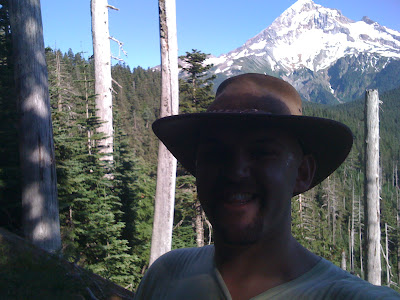I've had a fantastic couple of weeks which have more than met my initial expectations. I have no idea if anyone has been reading this blog but if you have then I hope you have enjoyed it.
The Dotter institute certainly deserves it's reputation as a centre of clinical excellence - I've been lucky enough to observe some very talented interventional radiologists perform advanced and innovative techniques. The IRs at the unit are also particularly adept at working within their financial constraints and this is a useful lesson for anyone working in a cash-strapped NHS.
This has also been an interventional radiology pilgrimage of sorts. Charles Dotter is often described as the father of interventional radiology and the Dotter Institute can fairly be considered the birth place of our specialty. The best IRs in the world have gravitated to the institute and some of them have never left. When I spent the afternoon in the research lab with Fred Keller, several elderly men came into the room to watch and advise as I struggled with the TIPS (in my defence pigs have rather different anatomy from humans). I gratefully received all advice offered but it was only later that I realised that my audience included Josef Rösch - the first person ever to perform a TIPS. (Looking through my blog I've realised that I unforgivably cropped a photo from the Dotter website for inclusion in an earlier blog entry. The victim of my cropping was none other than Josef Rösch - please see the original photo below.)
 |
| Kaufman, Keller and Rösch restored! |
A humbling experience and a great opportunity for an interventional radiologist at the start of his career. Thank you Charles Dotter.
 |
| Charles Dotter |
























